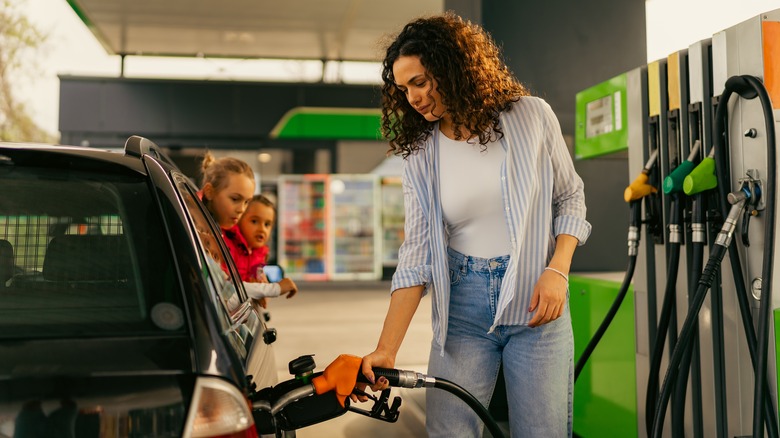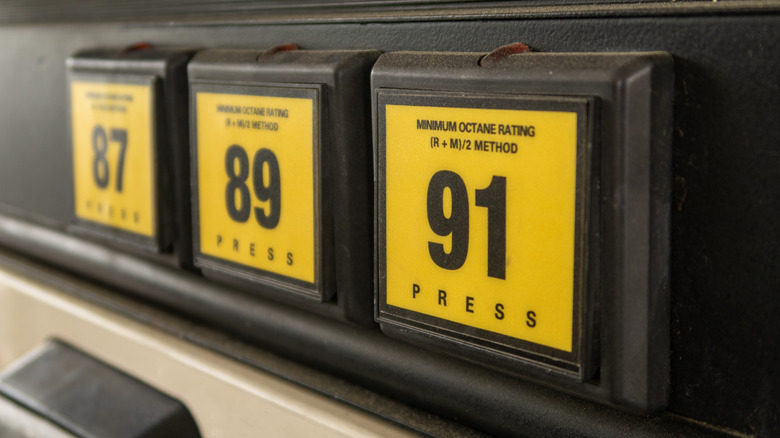What Happens If You Put Regular Gas In A Premium Car? (And Vice Versa)
In my nearly four decades of car ownership, I have driven a staggering variety of vehicles, from vintage Jeep CJ5s and CJ7s and International Scouts to turbocharged late-model Volkswagens and BMWs. One thing all cars have in common is the constant need for refueling, and we have lots of decisions to make regarding the fuel we put in our vehicles. The point of purchase is the time to consider whether to buy a gas or diesel-powered car or truck, and putting diesel fuel in a gas-fueled car can cause serious problems.
Pulling up to a bank of gasoline-only pumps presents you with another set of choices. Most service stations offer at least three grades of gasoline with different octane ratings, ranging from the high 80s (regular) to the low 90s (premium). Putting regular (usually 87 octane) gas in a car that requires premium (usually 91-94 octane) won't cause as much damage as putting in diesel fuel, but it can cause engine knock. Knocking is spontaneous combustion that occurs when latent spikes in pressure and temperature combust unburned fuel in your engine's cylinders. This can result in damage to engine internals, although modern engines have computerized ignition with sensors to detect and mitigate engine knock.
Premium gas is often a waste of money
Consult your owner's manual or look inside the fuel filler door for a sticker that identifies the minimum octane rating that your car's engine requires. Using a higher octane fuel than is called for won't do anything but drain your wallet faster than is necessary. All modern gasoline has the same detergent additives, and using premium fuel in a car that calls for regular isn't going to give you better gas mileage or increase performance. Cleaning your fuel injectors can help, though, and is an easy and inexpensive way to accomplish what you think using premium gas might do.
Any gains in fuel economy or performance you perceive could be a combination of coincidence, a placebo effect, or subtle changes in driving habits after using more expensive fuel. If your engine is knocking or making tapping noises after you shut it off, have it looked at by a mechanic — this could be a sign of a serious problem. Also, make sure to keep up with routine maintenance like oil changes and regular do-it-yourself tuneups; this will keep your car's gas mileage and performance at its peak.

